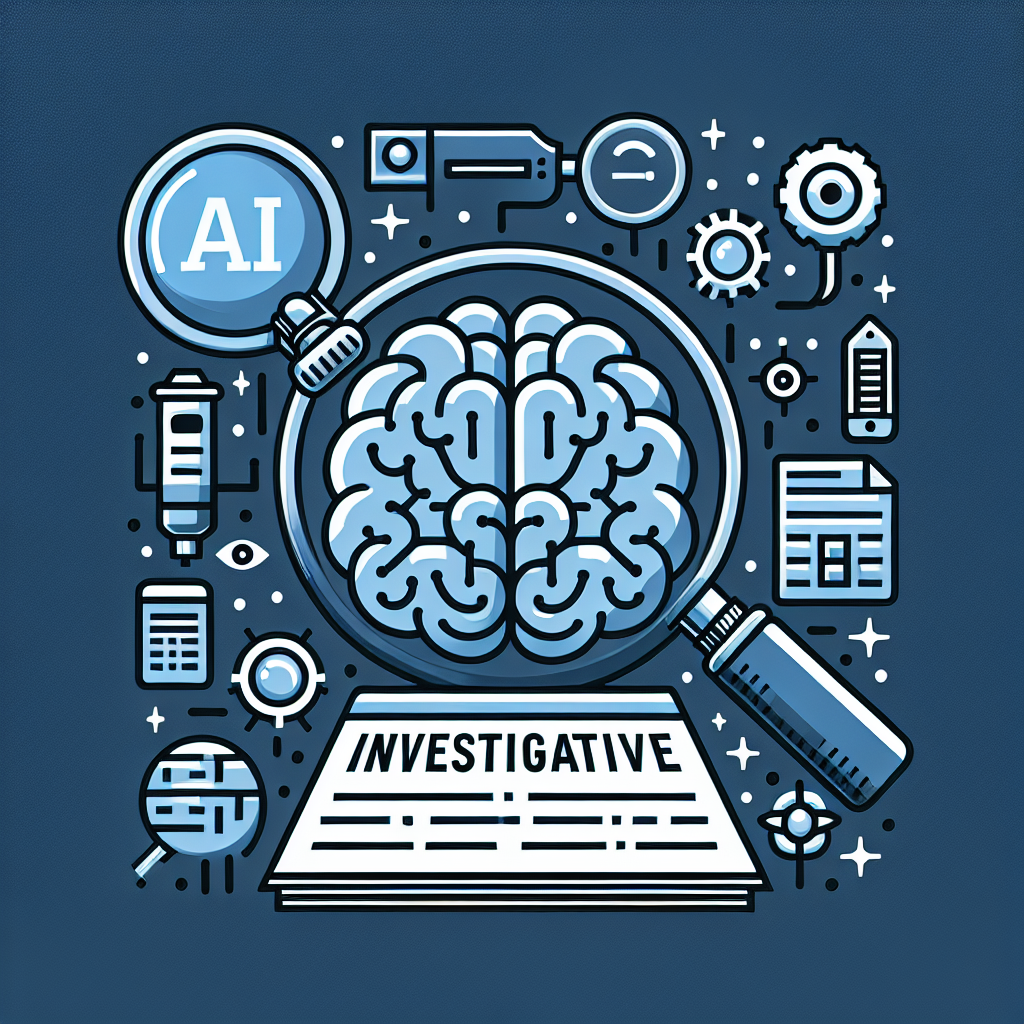Artificial Intelligence (AI) has been revolutionizing various industries, and investigative reporting is no exception. The marriage of AI and investigative reporting has led to a more efficient and effective way of uncovering hidden truths, exposing corruption, and holding the powerful accountable. In this article, we will explore how AI is transforming investigative reporting and the benefits it brings to the field.
AI and Investigative Reporting: A Powerful Combination
Investigative reporting has always been a time-consuming and labor-intensive process. Journalists spend hours sifting through documents, analyzing data, and conducting interviews in order to uncover the truth behind a story. With the help of AI, these tasks can be automated, allowing journalists to focus on more strategic aspects of their reporting.
One of the key ways AI is transforming investigative reporting is through data analysis. AI algorithms can analyze vast amounts of data in a fraction of the time it would take a human journalist. This allows reporters to uncover patterns, connections, and insights that may have been overlooked otherwise. For example, AI can be used to analyze financial records, emails, social media posts, and other sources of information to uncover fraudulent activities or unethical behavior.
AI can also be used to identify trends and anomalies in data that may indicate a story worth investigating. For example, AI algorithms can analyze social media posts to identify patterns of misinformation or propaganda campaigns. They can also analyze financial transactions to uncover suspicious activity or money laundering schemes. By utilizing AI in this way, journalists can uncover stories that may have otherwise gone unnoticed.
Another way AI is transforming investigative reporting is through the use of natural language processing (NLP) technology. NLP algorithms can analyze text data to extract key information, identify sentiment, and categorize content. This can be particularly useful in analyzing large volumes of documents, such as legal filings, government reports, or corporate communications. By using NLP technology, journalists can quickly identify relevant information and uncover hidden insights that may lead to a groundbreaking story.
AI can also be used to automate fact-checking and verification processes. In an era of fake news and misinformation, it is more important than ever for journalists to verify the accuracy of their sources and information. AI algorithms can be used to cross-reference information across multiple sources, detect inconsistencies, and flag potentially false information. This can help journalists ensure the accuracy and credibility of their reporting.
Benefits of AI in Investigative Reporting
The use of AI in investigative reporting offers a number of benefits to journalists and news organizations. Some of the key benefits include:
1. Increased efficiency: AI can automate time-consuming tasks such as data analysis, fact-checking, and document review, allowing journalists to work more efficiently and focus on the strategic aspects of their reporting.
2. Enhanced accuracy: AI algorithms can analyze data and identify patterns that may be overlooked by human journalists, leading to more accurate and insightful reporting.
3. Improved storytelling: By uncovering hidden insights and connections, AI can help journalists tell more compelling and impactful stories that resonate with their audience.
4. Cost-effective: AI technology can help news organizations reduce costs by automating repetitive tasks and streamlining the reporting process.
5. Greater transparency: AI can help journalists uncover hidden information and hold the powerful accountable, leading to a more transparent and accountable society.
FAQs
1. Can AI replace human journalists in investigative reporting?
While AI technology can automate certain tasks in investigative reporting, such as data analysis and fact-checking, it cannot replace the critical thinking, creativity, and intuition of human journalists. AI is a powerful tool that can enhance the reporting process, but it is ultimately up to journalists to interpret the data, conduct interviews, and tell compelling stories.
2. How can journalists ensure the ethical use of AI in investigative reporting?
Journalists must be mindful of the ethical implications of using AI in investigative reporting. They should be transparent about the use of AI technology in their reporting, disclose any biases or limitations of the algorithms, and ensure the accuracy and credibility of their sources. Journalists should also be aware of the potential risks of using AI, such as privacy concerns or algorithmic bias, and take steps to mitigate these risks.
3. What are some examples of successful AI-powered investigative reporting projects?
There have been several successful examples of AI-powered investigative reporting projects in recent years. For example, ProPublica used AI algorithms to analyze financial documents and uncover patterns of discrimination in lending practices. The Washington Post used AI to analyze social media posts and identify misinformation campaigns during the 2016 U.S. presidential election. These projects demonstrate the power of AI in uncovering hidden truths and exposing corruption.
In conclusion, AI is transforming investigative reporting in profound ways, offering journalists new tools and capabilities to uncover hidden truths, expose corruption, and hold the powerful accountable. By leveraging AI technology, journalists can work more efficiently, uncover hidden insights, and tell more compelling stories. While AI technology is not a replacement for human journalists, it is a powerful tool that can enhance the reporting process and lead to more impactful journalism. The marriage of AI and investigative reporting is truly a match made in heaven, and it is poised to revolutionize the field in the years to come.

